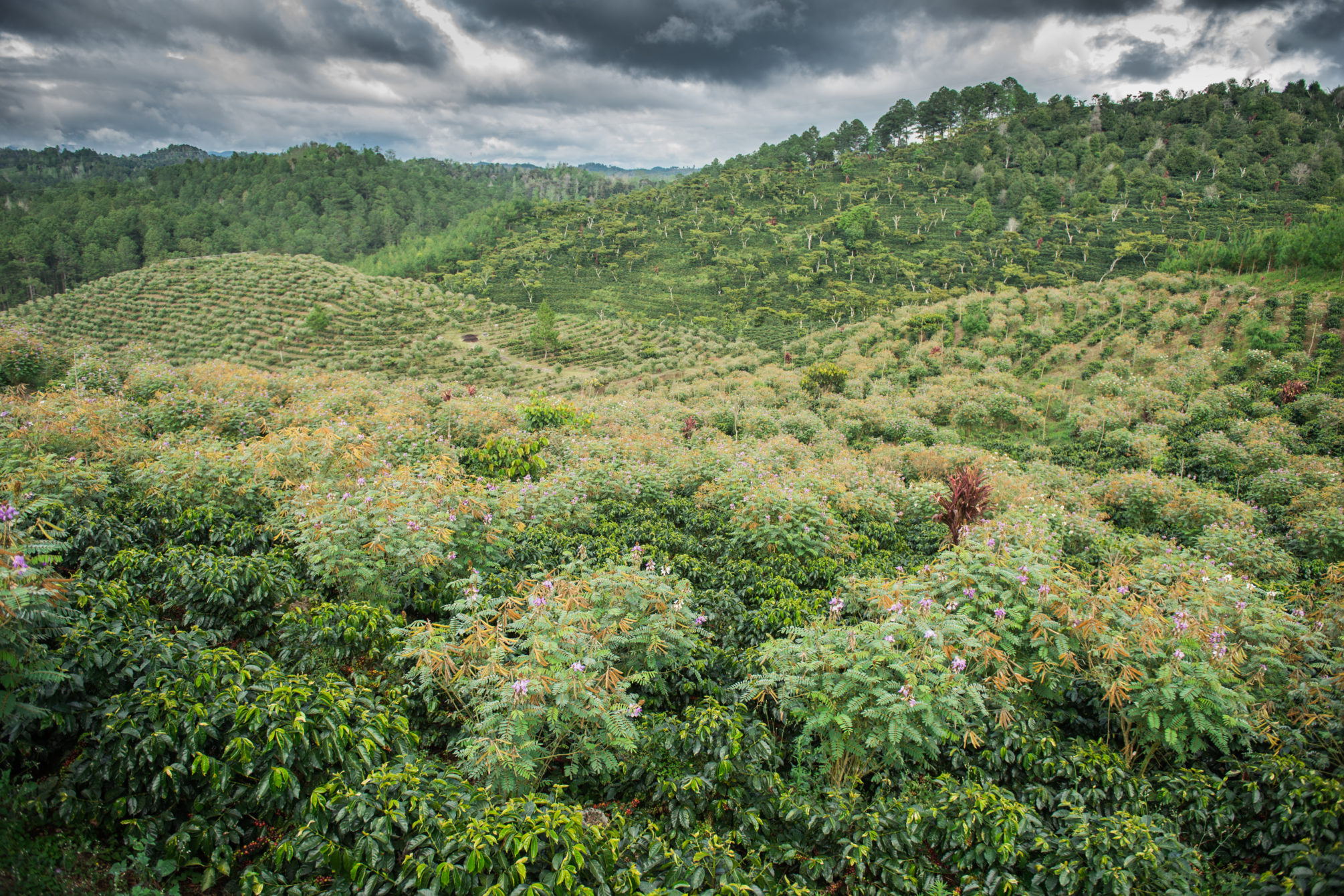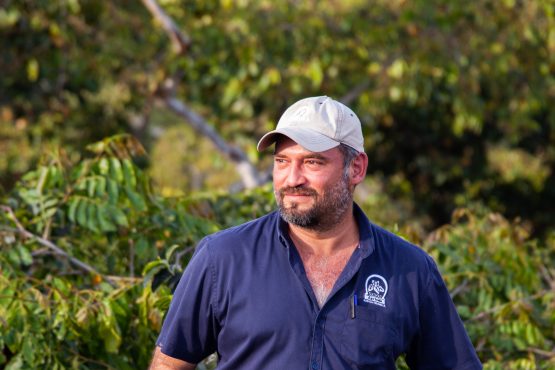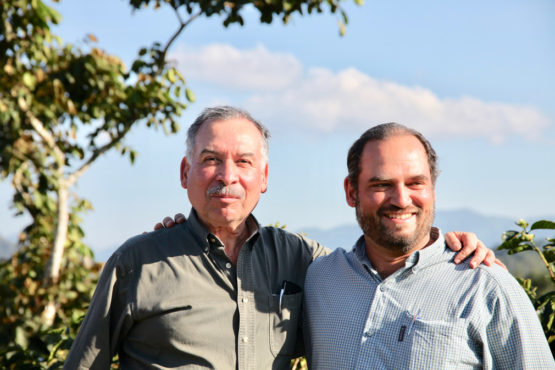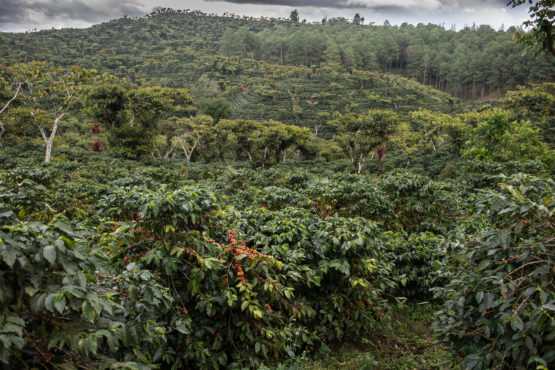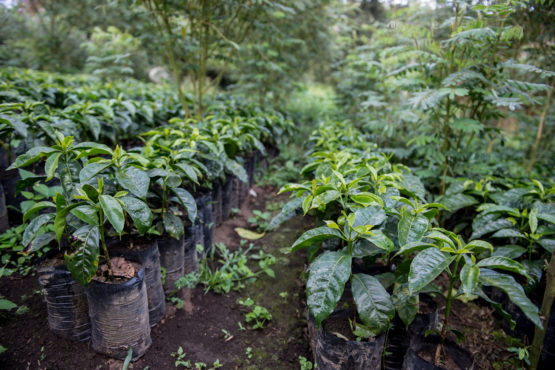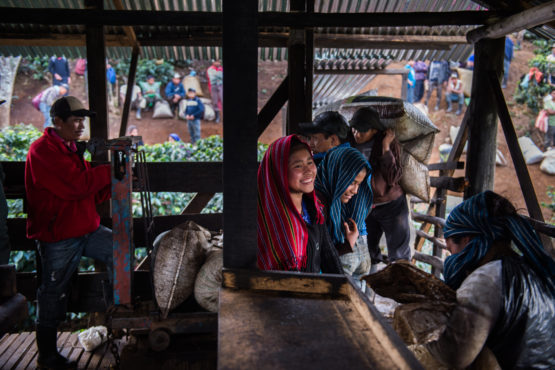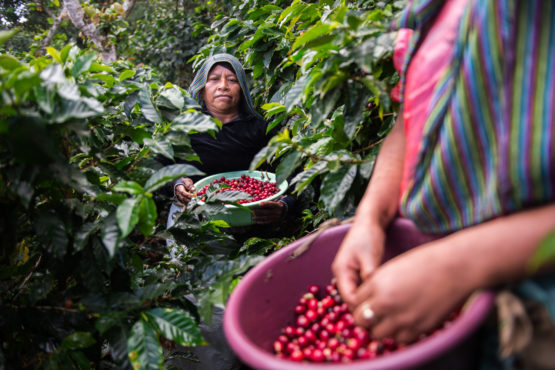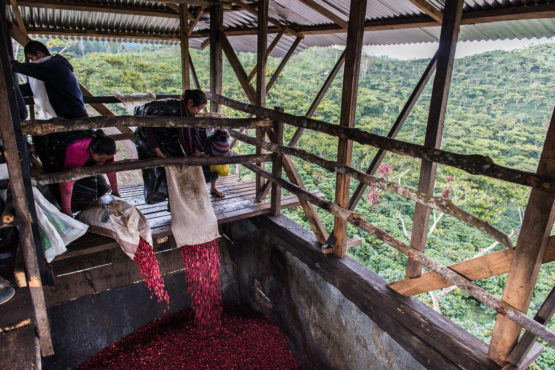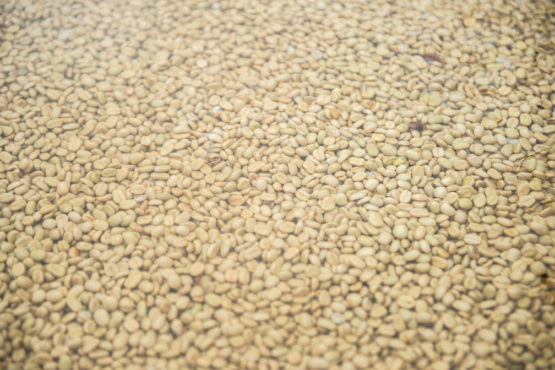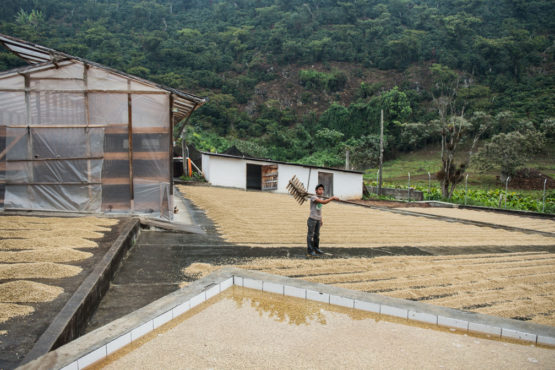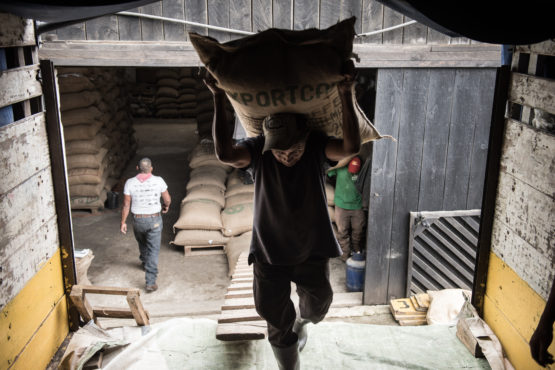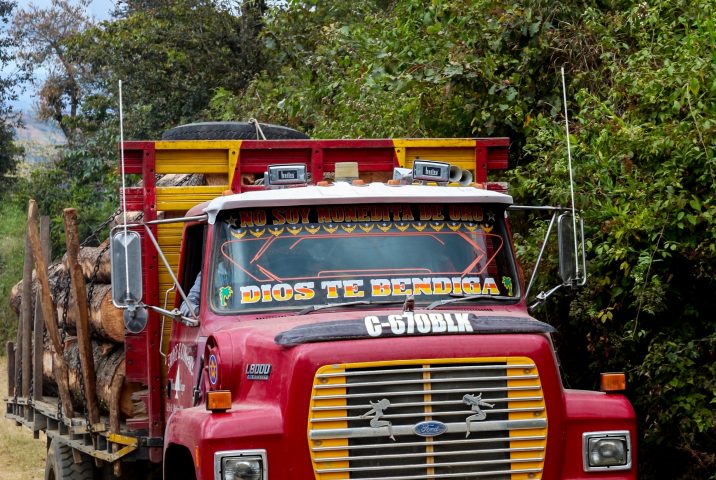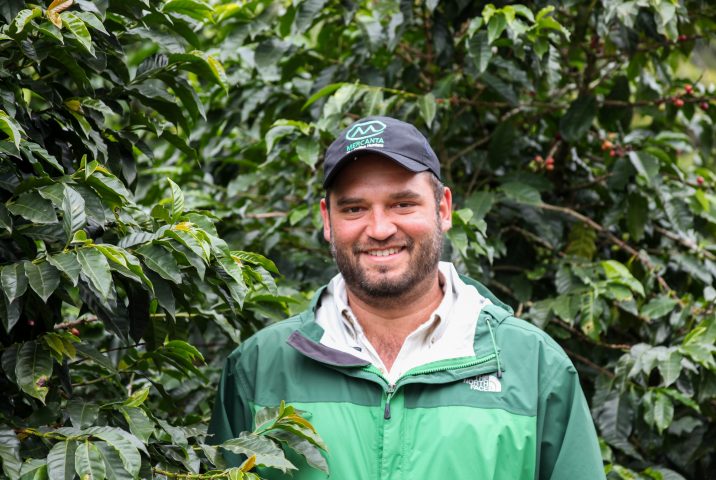Santa Isabel Estate
Bright and sweet. Passionfruit and green apple acidity, balanced by hazelnut and Chantilly cream sweetness.
Santa Isabel is a fifth-generation family farm, comprising 300 hectares in the beautiful and rugged region of Alta Verapaz: a unique growing region in Guatemala that has remarkable mountains, a cool climate and plenty of rainfall, as well as dense rainforest and impressive flora. Founded in 1875, the farm is today owned by Luis Valdés Sr and managed by his son, who is also called Luis—or, to his friends and family, “Wicho”.
Wicho grew up watching and helping his father on the farm and fell in love with coffee from a very young age. After school, he went on to study agriculture, before returning to work at Santa Isabel in 1998. Wicho’s passion and love for the farm is evident as soon as you meet him. As explained very simply to us on our most recent visit, “We love it here.”
The Valdés family care deeply about preserving their natural environment, and have dedicated nearly one-third of their farm (88 hectares) to a natural forest reserve—made up of cedar, pine and mahogany trees—which helps protect natural water resources and encourage biodiversity, providing a habitat for local animal and birdlife. Wicho also grows macadamia nut trees on the farm, which he harvests, mills and sells.
The remaining 200 hectares of the farm at Santa Isabel is dedicated to coffee production and is planted with with a wide range of varieties. Native inga trees are planted throughout the plantation to provide shade for the coffee trees and help enrich the soil by providing a healthy cover of foliage. The estate’s nursery currently has over 18,000 seedlings of seven different varieties, including Marsellesa, SL28, Gesha and Java.Wicho adopts a systematic approach to pruning, to optimise ventilation and light (and reduce excess humidity), which minimises fungal disease (including leaf rust) and, in turn, the need for treatment applications.
Since late 2021, the team at Santa Isabel have been actively working to reduce the amount of chemicals and non-organic materials used on the farm. In pursuit of this, Wicho has set up a lab at the farm, and has a full-time employee dedicated to harvesting microorganisms that, when used in a solution made with other organic compounds like cow manure and coffee cherry pulp, helps to make the coffee plants more naturally resistant to disease and insects. The results from this progressive approach have been incredible; Wicho no longer uses any pesticides on the farm and has already reduced his use of fungicides to more than half. The trees are also healthier and happier, and Wicho expects the quality to improve even more in the coming years. As he explained on our last visit, “instead of investing more in medicine, we want to invest more in nutrition.”
Santa Isabel sits at 1,400–1,600m above sea level. The farm receives a lot of rainfall—around 3,500mm, which falls regularly for 9–10 months of the year. This constant rain (much of it a gentle drizzle) means that coffee tree flowering is very staggered, with eight to nine flowerings a year, usually between April and June. This results in a long harvest period, which typically runs from November–May, as the coffee cherries ripen at very different rates. To combat this, Wicho instructs at least 12 passes for picking (with breaks of up to 14 days between passes), to ensure that only the very ripest cherries are selected.
Wicho employs and trains over 40 permanent workers throughout the year, and up to 500 temporary workers during the harvest period (though he only managed to find 120 this past year), who come from up to 20 miles away to work on the farm. Wicho has commented that although many farms in the region find it increasingly difficult to secure labour for the entirety of the harvest, Santa Isabel has a stable and reliable workforce, despite their reputation for being very demanding in regards to selective picking. In addition to being paid fairly, a picker at Santa Isabel can harvest up to 160 pounds of cherry a day, which is a great day’s yield, meaning that many of the same workers come back year after year. Wicho knows most of the workers by name, and there is an open and respectful dynamic amongst the team.
We have been visiting Santa Isabel every year since 2013. The first thing that stood out to us on our initial visit to the farm was the immaculate condition of the wet mill (located on the farm itself), and the care and precision that goes into processing the coffee. Wicho is fastidious in all aspects of his approach to farming and processing and is continuously evaluating and investing in improvements at the farm to further enhance quality. Most recently this has included building a greenhouse to dry his coffee, as well as upgrades to the equipment used to ensure it is the very best available on the market.
ABOUT COBÁN & ALTA VERAPAZ
The municipality of Alta Verapaz and capital city Cobán are known for their lush rainforest and cool and very wet climate – with an annual precipitation of 3,500m, and regular rainfall throughout the year. This results in a very slow maturation time for the coffees (which can help produce very sweet and complex flavour profiles), with staggered flowering and ripening requiring producers to make as many as ten passes throughout the season to ensure only the ripest cherries are selected. The wet climate can provide a challenge for coffee drying, and the region’s remoteness also provides some barriers for producers. With great care, however, some truly exceptional coffees are produced in this region, including this crowd-favourite lot!
HOW THIS COFFEE WAS PROCESSED
Within hours of being picked, the red cherries are transported by foot or tractor to Santa Isabel’s wet mill (located on the farm) where they are sorted through a mechanical siphon and graded by weight. They are pulped immediately and then fermented for up to 17 hours, and then passed through a “washer” to remove any remaining fruit. The coffee is then passed through channels and graded by weight, and then soaked in clean water for 24 hours. It is then dried in the sun for 10–15 days until it reaches 30% humidity and is then transferred to a greenhouse to finish drying on raised beds. Their aim is to dry coffee slowly and consistently, with an ideal 5% drop in humidity per day, until humidity is 11%.
We began working with Santa Isabel in 2011, when we were lucky to buy a lot from Wicho through the Cup of Excellence competition (where it placed eighth). We loved it in 2011, and every year we fall in love all over again—this year is no exception!
